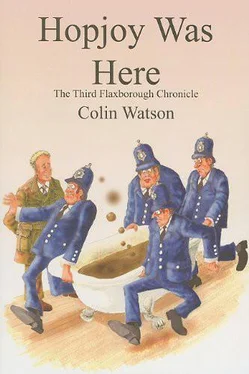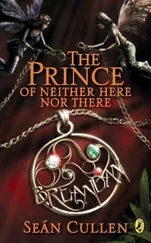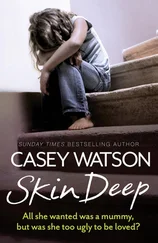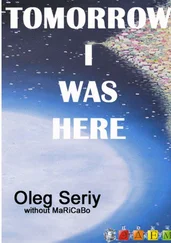Ross smoothly sank the black, another red, black again. A third red lay an inch from the pocket mouth. The cue snaked forward a fraction left of centre of the white ball to impart side. Incredibly, it slid off and veered to one side with a rattle; the white rolled foolishly into impact with the pink.
“Oh, hard cheese! Bloody hard cheese, matey!”
Acknowledging this jubilant condolence with a shrug, Ross glanced at the tip of his cue. There glistened upon it a few tiny bubbles of saliva.
The sailorman, propelled around the table by the noiseless spring of his single leg, wielded his cue like a compensatory natural limb. With every stroke, the swiftly changing pattern of brightly coloured orbs was diminished.
As Ross watched the great bounding barrel, he sensed the satisfaction of the silent audience, one of whose fingers, deftly spittled, had stolen from the dark to cut short his own success. He was no more resentful of that malicious intervention than he would have been of the secretion of a bomb in his car boot. “Unfair,” Ross knew perfectly well, was a word with meaning only for cowards and failures. The game, of course, was lost, but winning or losing in so trivial a context concerned him not at all. His attention was riveted upon a point just behind his preoccupied opponent’s right ear (that point, by quaint coincidence, at which a firmly driven ice pick or bradawl would reliably produce immediate loss of consciousness and rapid death).
Protruding beneath the greasy band of the man’s cap was the corner of a slip of paper,
Ross wasted no time speculating on whether the paper could be surreptitiously tweaked away, even in a moment of contrived confusion. It would have to be snatched audaciously and run off with. And luck would be needed: most of the score or so of taciturn onlookers were unquestionably the man’s allies. The fact that he could not see their faces gave him no hope of their being pacific or infirm.
There remained only blue, pink and black upon the board. The sailorman hoisted his trunk on the table’s edge and drew back the butt of his cue. Ross moved closer behind him. The white ball flew to the blue, dispatched it slickly into an end pocket and rolled obediently back to within three inches of the cushion. The sailorman grunted, levered himself upright and took a rearward hop.
Before he could bend to take aim at the pink, there flashed to his neck the hand of Ross, who was already half-turned for flight.
With a bellow, the one-legged man dropped his cue and grasped the back of his head as if stung by a wasp. Ross already was three strides nearer the swing doors, bearing with him the man’s crutch.
Escape seemed open. Ross plunged for the doors. Then, unaccountably, his legs scissored upon something hard and slim. He spun helplessly off course and crashed to the floor, pain ballooning in his thigh.
In the darkness, a man drew back his cue and assured himself it was unbroken. Then he stooped quickly and picked up the crutch.
Ross rolled under the nearest table to recover his breath. He glanced at the doors. Half a dozen heads were silhouetted against the glass. There would, though, be emergency exits. He thrust the captured piece of paper into his cigarette case and crawled out into the gangway.
The sailorman, his incredible mobility restored, was stumping to and fro near the spot where Ross had been brought down. After a while, he began to move from table to table, systematically, feeling for his quarry with sweeps and jabs of his crutch. Ross, bending low, crept away from the sound of his exploratory advance. He wondered how long it would be before the steward, by now doubtless assigned some part in the hunt, switched on all the lights.
Or was the persistent gloom an agreed precaution against identification?
Apparently not. There was a click, followed by another and another. Soon the bulbs over every table were blazing.
Ross lay flat. He was now nearly in the middle of the hall, in one of the patches of shadow immediately beneath the tables themselves that were still deep enough to give him concealment.
He looked quickly around. The legs of the hunters in the gangways were plainly visible. They moved without haste. Now and then a pair of legs bent and the outline of an inverted head descended. Unexcited murmurs and mutterings reached him.
Above them, a voice rose loud. “Come on, matey. Stand up and stop playing silly buggers. Nobody’s going to hurt you.”
Ross snaked across to the shelter of the next table. He had spotted a red painted door in the centre of the nearer wall. If he could cross three more gangways, he would reach it.
“I want to talk to you. Stop farting about, damn you.” The probing crutch crashed against a table leg. Ross made another shuffling sortie on hands and knees. He gained five more yards.
For some seconds, the place was absolutely silent. Then he heard a curious trundling sound. It quickly grew louder, diminished with the same rapidity, and ended in a distant crash.
Again it was quiet. Then the noise was repeated. This time it seemed louder, nearer. Ross tried to interpret it, but in vain. Once more the swift, menacing rumble passed through the hall, climaxed with a great hammer blow.
At the instant the noise began for the fourth time, Ross realized what was happening. His adversary was trying to bowl him out of hiding—or, more likely, incapacitate him—with one of the heavy, flint-hard snooker balls that he was sending in vicious under-arm volleys along the floor.
This fourth missile, Ross knew with certainty, was bound straight for its target. He knew too that the tiny fraction of time that remained before its violent arrival would permit of not the slightest self-protective movement. The immediately impending pain could not be begged off. Embrace it, then, his brain commanded; lumpenly absorb the agony and store it as a fuel of retaliation.
In the path of the hurtling ball, Ross became limp as a new corpse. The incredibly effectual mental annealing processes of Course Five were now being proved. His mind was a calm, dark void, prepared for pain’s fertilizing penetration.
It did not come. Three feet short of Ross’s head, the ball rose miraculously and shot past his ear.
Wonderingly, Ross reached out and groped for what had saved him. His fingers met an angular fragment. It was the vestige of a cube of billiard chalk.
The bowling went on methodically. But the particular danger it represented had passed with the diversion of the sailorman’s attention to other rows of tables. Looking back along the floor, Ross saw that the followers of the attempt to drive him to a view were moving in a group behind the bowler. They seemed in general a good deal less anxious to mount an offensive than the earlier intervention of the man with the cue had suggested. Ross decided that his best course was open retreat, coupled with the risk of the red door’s being locked.
He crawled swiftly across the last two aisles and rose to his feet, lifting the door’s catch bar at the same time. He pushed. The door remained shut. A hoarse, angry cry signalled his having been seen. As he heaved against the unyielding door he heard the rapid thumping of the enemy crutch. He put his foot against the bar and kicked. This time the long-disused bolts jumped from their corroded sockets. The door swung back and Ross leaped into blinding daylight.
He was in a passage comfortingly filled with the noises of the street at its end. In a few seconds Ross stepped out into the Corn Exchange.
No one had followed him.
Chapter Nine
In the Neptune kitchen, a waiter reached up through the warm, savoury steam and pulled a bottle of 1953 Beaune from the rack. He tossed it jocundly from hand to hand a few times, twirled it in the dust box, and cradled it. Just before he passed through the service doors into the restaurant, he stiffened his unexceptional face into the lineaments of omniscient superiority and drew back his shoulders. Then he glided to the table of Gordon Periam and party, bearing the wicker basket as if it contained the last surviving fragment of the True Cross.
Читать дальше

![Fredrik Backman - Britt-Marie Was Here [Britt-Marie var här]](/books/61260/fredrik-backman-britt-marie-was-here-britt-thumb.webp)










